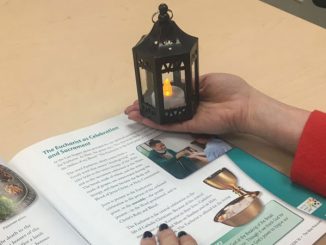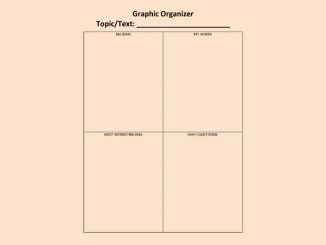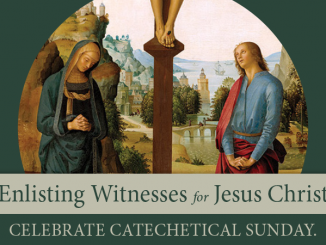
Holding On to the Light of Christ: An Idea for Your Faith Formation Sessions
I have been and always will be an advocate for integrating a “language of mystery” into our faith formation sessions—using signs, symbols, rituals, music, movement, silence, and so on to deepen our awareness of the mysterious presence of Christ in our midst. The following idea flows from that commitment but also has value as a practical, pedagogical tool to enhance the experience of reading from a textbook. I have written before about the role of […]






